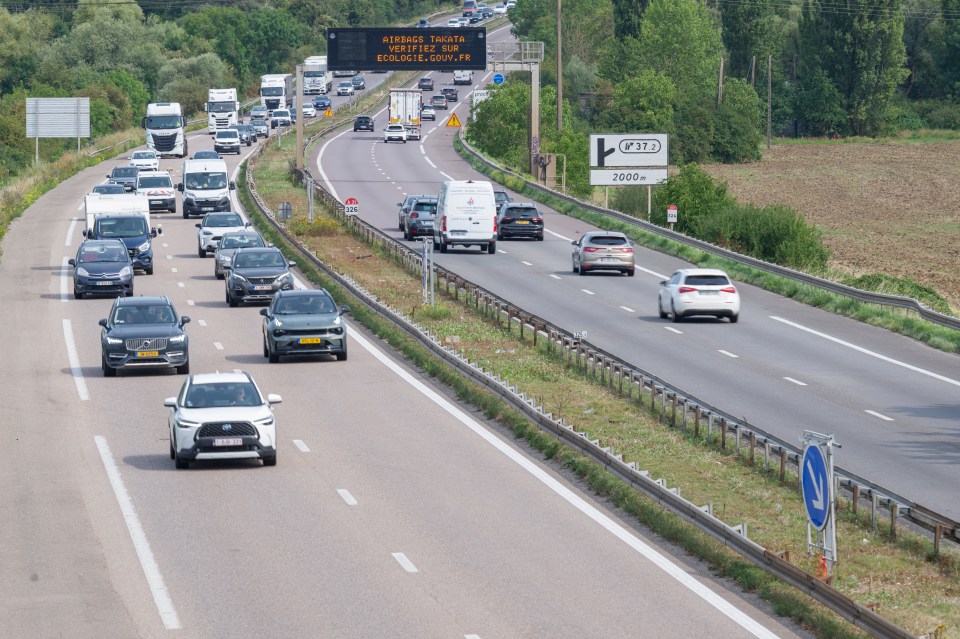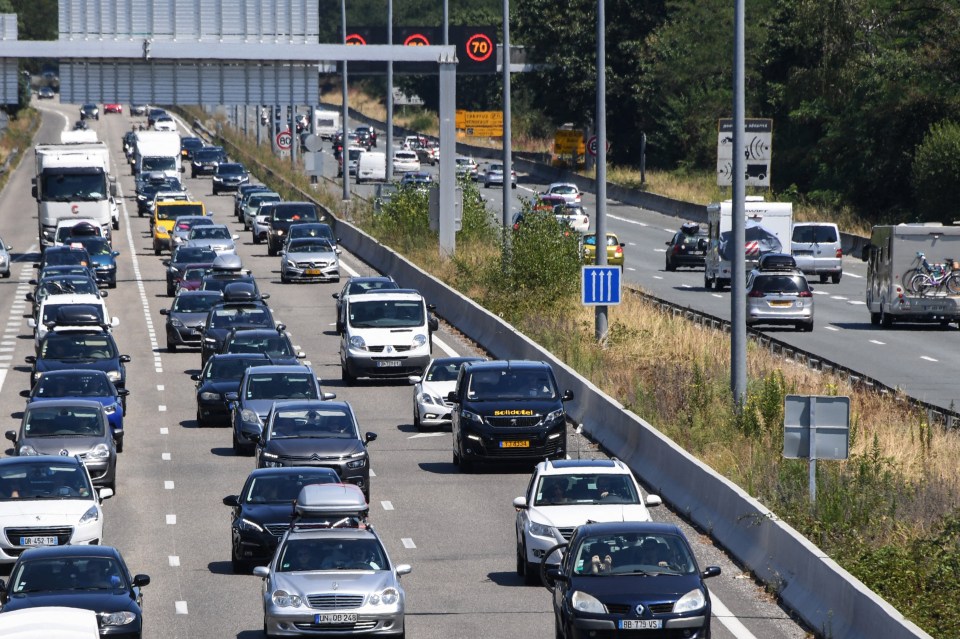FRANCE has launched an urgent probe into a series of motorway crashes blamed on “phantom braking” – when cars suddenly screech to a halt at high speed for no reason.
The probe follows a terrifying incident near Lyon, where driver Joanna Peyrache said her Peugeot 208 suddenly dropped from 65mph to a complete standstill on the motorway.
The car behind smashed into her vehicle, spinning it around, and leaving it badly damaged.
Miraculously, she escaped with no serious injuries.
Joanna told local media: “The car behind collided with me, and my vehicle spun around 180 degrees under the shock.
“I don’t understand why the car suddenly braked.”
Neither her insurance company nor the other driver’s would take responsibility.
She was left to dig for answers herself.
Her ordeal has since sparked more than 300 similar reports from drivers who claim their vehicles also stopped without warning.
Most of the cases involve cars fitted with Automatic Emergency Braking and other high-tech safety systems designed to prevent accidents.
Instead, these gadgets appear to be triggering crashes by mistaking shadows, roadside signs or even harmless obstacles for danger.
Some drivers have been so shaken by the incidents that they are considering launching a class-action lawsuit against carmakers.
Experts warn the problem could be far wider than France.
As modern cars rely more on driver-assistance systems, a single software glitch could put millions at risk.
In one tragic case in December 2023, a passenger was killed when her car braked sharply on a motorway and was hit from behind.
Another driver, Aurélie Tormos, said her own vehicle slowed without warning in a similar smash. Her passenger died and she was later convicted of involuntary manslaughter.
Campaigners say these convictions must be reviewed if phantom braking is proven to be the true cause.
A petition calling for a parliamentary inquiry has already picked up more than 450 signatures.
It urges MPs to “launch an immediate inquiry into the malfunctions of automatic braking systems”.
The petition adds: “Several car brands are affected.
“The common thread among all these incidents: the presence of a driver assistance system, particularly for braking.”
Christophe Theuil, vice-president of the French Federation of Automotive Expertise, explained: “If the sensors are poorly adjusted, it’s a bit like a nearsighted person driving without glasses.
“With a difference of just one degree, the car can brake for objects that, in reality, are not present in the lane.”
Officials say the investigation will examine sensors, algorithms and even weather conditions to understand what is going wrong.
So far, there has been no official recall in France, though drivers say the fault appears across different makes and models.
The row in France comes just days after thousands of UK motorists were slapped with a separate “do not drive” recall.
More than 100,000 Citroën and DS models on British roads have been grounded over potentially deadly airbags.
The airbag scandal is not linked to phantom braking – but both cases raise questions about car safety and how quickly manufacturers act.
Industry insiders warn the latest scare could damage trust in self-driving technology, which relies heavily on the same type of sensors now under suspicion.
Some fear “phantom braking” could even delay the rollout of autonomous vehicles if the issue is not fixed.
Practical steps to take today
- Stop driving immediately. Park the car safely and remove the keys.
- Confirm your status by using the recall checker and then call your dealer with your VIN.
- Book the repair. Push for the earliest available slot or at‑home fix.
- Ask for mobility support. If no courtesy car is offered, request it explicitly – and ask about alternative options if the waiting list is long.
- Keep records. Save emails, note call times, and keep receipts for any extra travel costs.















